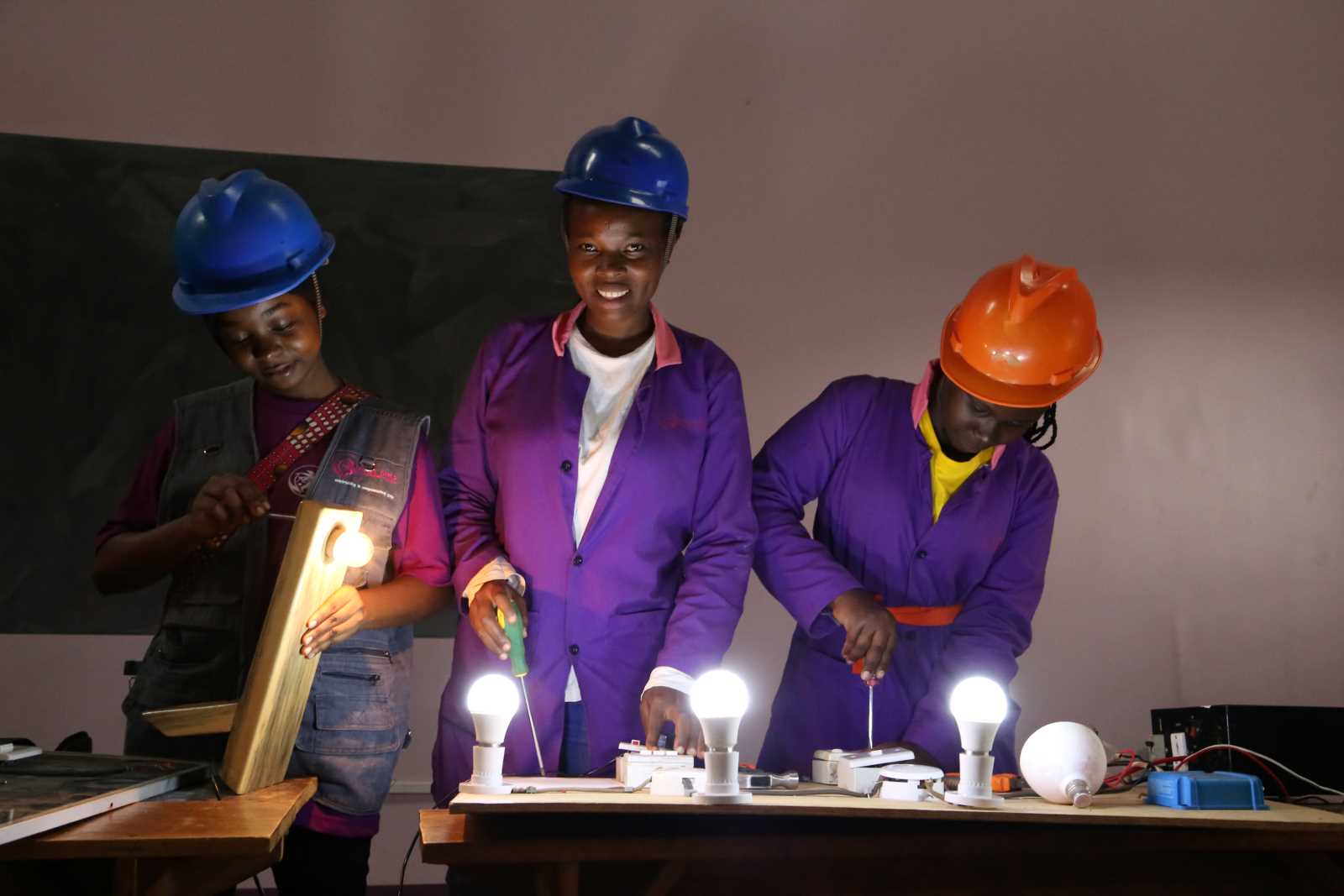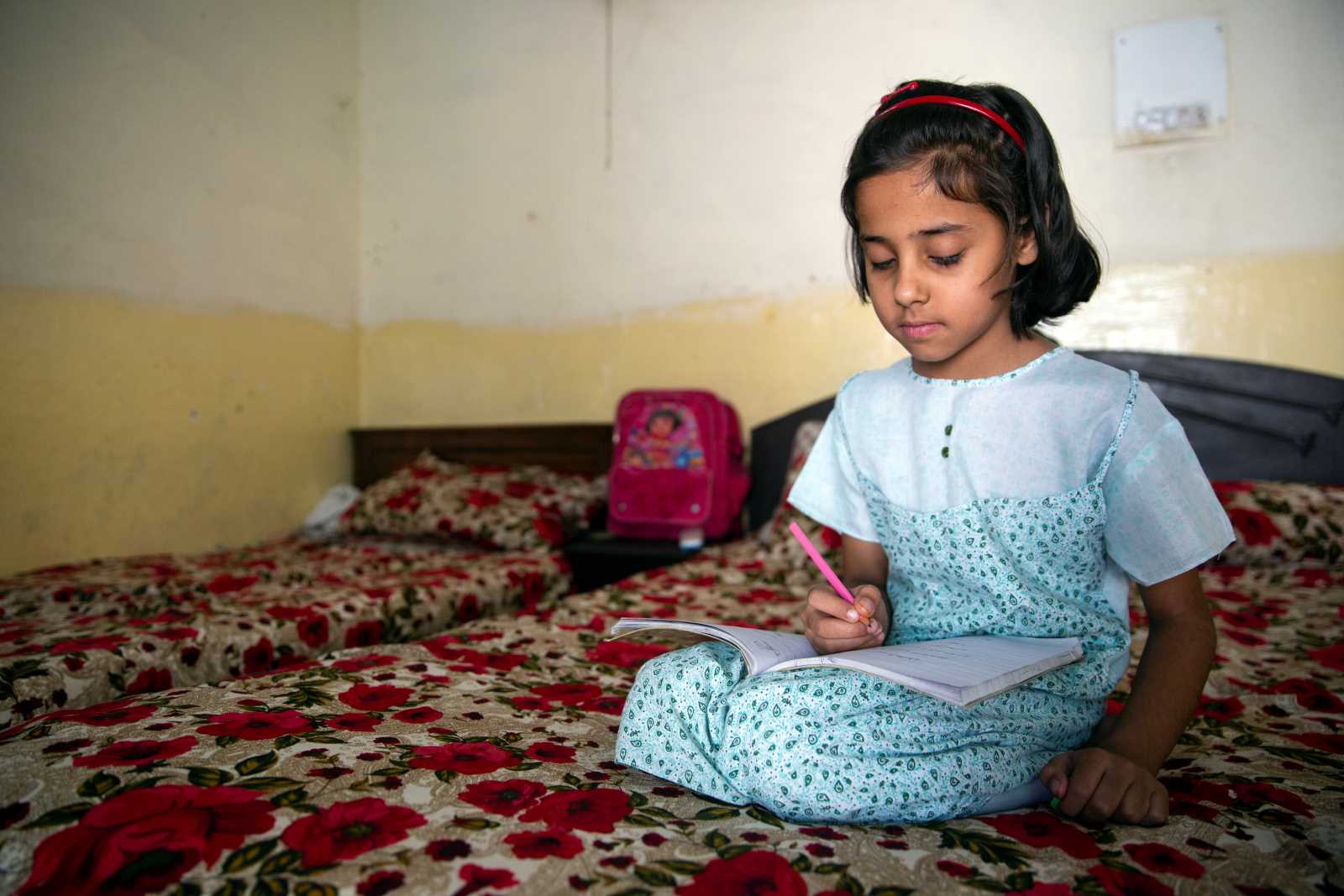Gender justice
Encouraging women to profit from e-commerce in Africa

Meet Adejumoke Olutayo, the founder of Deeski.com, an online grocery outlet in Nigeria. A mother to eight-year-old twins, she has built a thriving business through online sales on one of Africa’s largest e-commerce platforms. Launched in 2016, Deeski.com now serves all areas in Nigeria’s bustling commercial capital Lagos and employs 14 full-time staff members.
Stories like Adejumoke Olutayo’s are not unique. Africa’s e-commerce market is witnessing exponential growth and is allowing women entrepreneurs, who outnumber their male counterparts on the continent, new income-generating avenues.
In 2020, e-commerce in Africa was valued at $ 20 billion. It is the fastest-growing e-commerce market in the world, expected to reach $ 84 billion by 2030. The number of online shoppers in Africa is set to surpass half a billion by 2025, growing annually at a rate of 18 % since 2014 and exceeding the global average of 12 %. The Covid-19 pandemic has accelerated an already strong trend and brought new customers to the e-commerce space.
Opportunities for women
E-commerce represents a unique opportunity for women entrepreneurs to leverage this booming sector to increase their revenues and strengthen their business performance. First, e-commerce allows women to operate in the retail sector without needing physical stores that require capital. Second, e-commerce provides instant access to a wide variety of buyers as well as a reliable ecosystem of services, such as marketing, payment and logistics services. With that, women entrepreneurs get much-needed support that could help them scale quicker.
Lastly, e-commerce allows women the flexibility to work at the time and location that suits them. This flexibility is important given the disproportionate level of care responsibilities women carry. According to the International Labour Organization (ILO), African women spend more than three times as much time on unpaid care work as men.
In 2021, the International Finance Corporation (IFC) partnered with Jumia Group to conduct a study that leverages data and insights from sellers on Jumia, one of Africa’s largest e-commerce platforms, in Kenya, Côte d’Ivoire and Nigeria. IFC is a member of the World Bank Group focused on the private sector in developing countries. The study’s aim was to understand how to boost opportunities for women entrepreneurs in e-commerce. It found that the value of the African e-commerce market could increase by nearly $ 15 billion between 2025 and 2030 if women’s sales reach parity with men’s (IFC 2021).
Women are well-represented in e-commerce in Africa. On the Jumia platform, they own 35 % of businesses in Côte d’Ivoire and 51 % in Kenya and Nigeria. When comparing the presence of formal business ownership between the Jumia platform and national statistics, women-owned businesses were better represented on the Jumia platform in both Kenya and Nigeria. This means that women are active participants in e-commerce.
Being successful in male-dominated sectors
E-commerce could enable women to move into male-dominated sectors which are characterised by high earning potential. This is good news as gender-based segregation in sectors is a key challenge standing in the way of greater profitability for women entrepreneurs. According to a World Bank report, female entrepreneurs who cross over to male-dominated sectors on average make higher profits than female entrepreneurs in female-concentrated sectors (World Bank 2022).
Findings from the study in Africa corroborate this. For example, women held more than half of the market share in the clothes and accessories segment yet generated only one third of the gross merchandise value (GMV) of the segment. Conversely, they held about one third of the market share in the male-dominated electronics sector yet generated two thirds of its GMV. E-commerce can, therefore, open opportunities for women in male-dominated, high-value spaces and support women entrepreneurs’ growth and profitability.
Removing roadblocks
The road toward equal participation is, however, not well paved. Connectivity challenges and low digital literacy are among the main barriers for women in Africa which need to be addressed to ensure women can profit from e-commerce. Only 24 % of girls and women in Africa are estimated to use the internet compared to 35 % of the male population. Furthermore, the continent faces digital skill shortages at all levels, but especially at the intermediate and advanced levels which are critical for women to use digital tools and technologies (World Bank 2021).
These gaps are evident in the way women use e-commerce platforms. For instance, the study conducted by IFC and Jumia showed that women are more likely than men to value training and business support provided by the platforms. One woman entrepreneur in Nigeria shared that she used the training offered to learn how to upload product pictures. Additionally, women are less likely than men to invest in paid promotions for their products and do not take full advantage of system features such as advertising and marketing services.
E-commerce platforms therefore need to support women entrepreneurs in gaining the necessary skills to operate the system and all the features it offers. Not only will this help to boost women’s businesses, but it will also provide additional revenue streams to the platforms through the increased usage of its paid promotional services.
Addressing financing
Financing is another barrier for African women entrepreneurs in e-commerce. The challenges for women-owned micro, small and medium enterprises (MSMEs) are well documented. IFC estimates that the financing gap for women entrepreneurs in developing economies is valued at $ 1.7 trillion.
Research findings on e-commerce show that over 80 % of the women-owned businesses on the Jumia platform in Kenya, Côte d’Ivoire and Nigeria were microenterprises and the majority rely on personal savings to start their businesses. Women typically join the platform to expand an existing business. They rely mostly on family and friends as a source of finance after start-up.
Fintech offerings, such as lending services administered through e-commerce platforms, can give sellers access to short-term working capital. On Jumia’s platform, only seven percent of women use this option compared to 11 % of men, yet women were more likely to be approved for these loans.
Evidence suggests that, in addition to technology and skills barriers, women tend to self-select out of such loans due to a perception that their businesses have lower creditworthiness (African Development Bank Group 2019). Platforms and financial institutions can leverage the fact that women are already active on these platforms. They can encourage those that operate growth-stage businesses to apply for loans and train them on how to use these fintech offerings on the e-commerce platform. This would help women expand their businesses and boost their sales. It may also encourage them to pursue additional funding sources outside of the platform.
Women have more to gain from greater participation in e-commerce and more to lose if they are excluded from this new form of business. Addressing connectivity, digital skills and access to finance barriers will help African women entrepreneurs profit from e-commerce as well as support the growth of the African e-commerce market. A win-win for all.
Further reading
IFC, 2021: “Women and e-commerce in Africa”
https://www.ifc.org/wps/wcm/connect/topics_ext_content/ifc_external_corporate_site/gender+at+ifc/resources/women-and-ecommerce-africa
World Bank, 2022: Breaking barriers: Female entrepreneurs who cross over to male-dominated sectors.
https://openknowledge.worldbank.org/handle/10986/36940
World Bank, 2021: Digital skills: The why, the what and the how.
https://thedocs.worldbank.org/en/doc/0a4174d70030f27cc66099e862b3ba79-0200022021/original/DSCAP-MethodGuidebook-Part1.pdf
African Development Bank Group, 2019: Women self-selection out of the credit market in Africa.
https://www.afdb.org/sites/default/files/documents/publications/wps_no_317_women_self-selection_out_of_the_credit_market_in_africa.pdf
Jaylan ElShazly is Disruptive Technology acting Lead at IFC’s Gender and Economic Inclusion Group.
jelshazly@ifc.org














